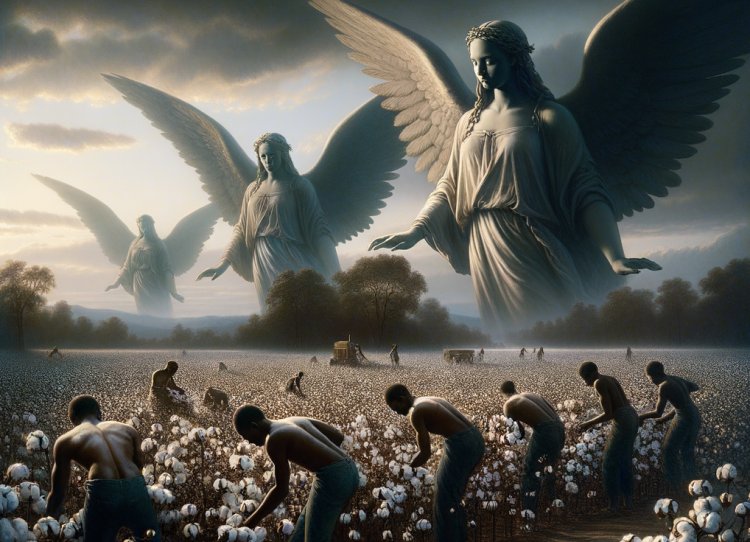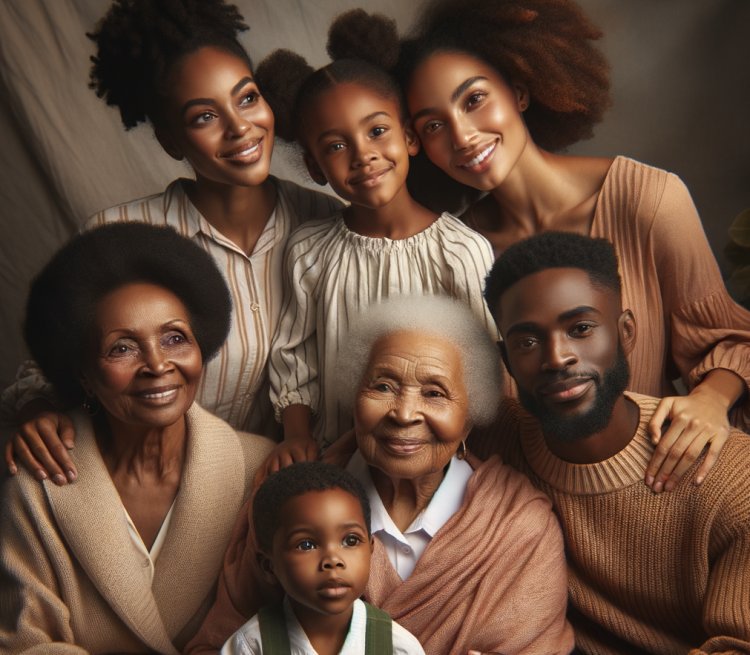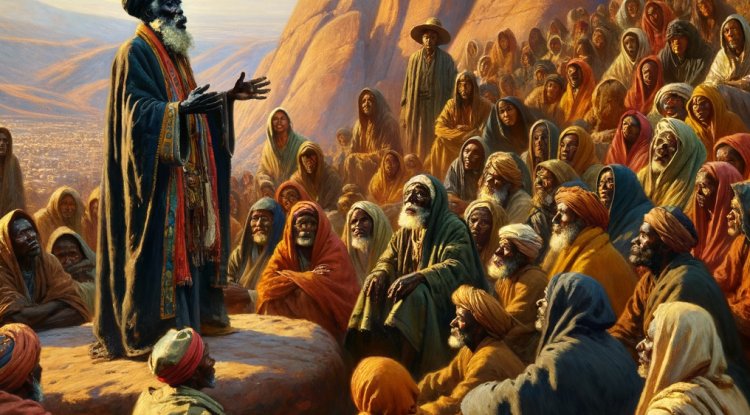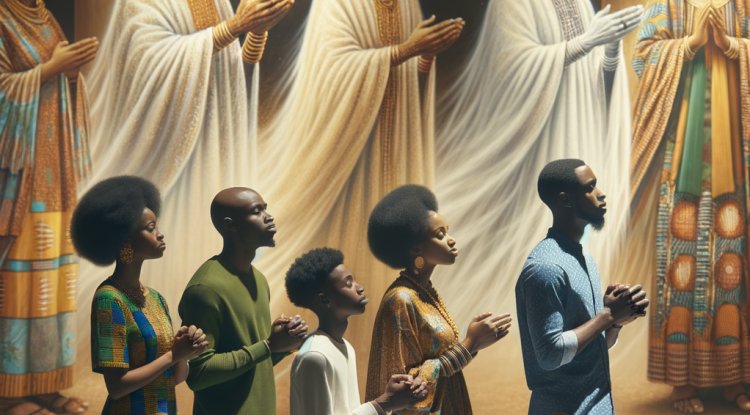Revisiting Africa: Some History and Modern-Day Benefits
The United States are famous for propaganda and lies about Africa. They show pictures of African children living in poverty while at the same time neglecting the poverty in their own country.

Many people now know about the lies told on Africa that come from American and Western institutions and the media, but for a few decades have been learning the truth. The main lie is that Africa is poor. Africa has never been poor and have always been rich with resources, which is why it has been looted by European countries throughout history, and still being looted.
Africa is a beautiful and thriving continent with 54 independent countries. The 10 African countries with the largest population as of 2023:
1. Nigeria – 211 million
2. Ethiopia – 117 million
3. Egypt – 112 million
4. DR Congo – 102 million
5. Tanzania – 67 million
6. South Africa – 60 million
7. Kenya – 55 million
8. Sudan – 48 million
9. Uganda – 48 million
10. Algeria – 45 million
"The oldest of the countries is Egypt, which had the original name of Kemet. Around 3150 BC, King Menes founded a unified kingdom. Egypt was united by the first two ruling dynasties and set the stage for the Old Kingdom period from 2700-2200 BC. This era was famous for its pyramids, especially the Third Dynasty’s pyramid of Djoser and the Giza Pyramids in the Fourth Dynasty. The Great Sphinx and Pyramids of Giza are the basis of Egypt’s modern tourist industry.

The Eighteenth Dynasty began the New Kingdom and Egypt became a world power as it extended the empire south to Tombos in Nubia. It lasted from 1550-1070BC. The most well known pharaohs ruled during this period, such as Thutmose III, Akhenaten, Hatshepsut, Nefertiti, Tutankhamin, and Ramesses II. Atenism was the first historically known expression of monotheism. Contact with other areas brought the New Kingdom new ideas. The Libyans, Assyrians, and Nubians later invaded Egypt, but were driven out eventually.
Persian, Greek, and Roman Occupation
The last native ruling dynasty was the 13th. The Persians defeated it in 343 BC after King Nectanedo II failed to defend Egypt. Egypt later fell to Greco-Macedonians and Romans. This began 2,000 years of foreign rule. Cleopatra VII was the last ruler from the Ptolemaic line. She committed suicide with Marc Antony, her lover, after being captured by Caesar Augustus."
Other false information has been that Blacks were not introduced to Christianity until they arrived in the States and under slavery. Christianity is a religion older than the United States so that cannot be true. “Christianity in Ethiopia dates back to the ancient Kingdom of Aksum, when the King Ezana first adopted the faith in the 4th century AD. This makes Ethiopia one of the first regions in the world to officially adopt Christianity.”
"Ethiopia is also mentioned by name in the Old Testament. Kush is used in other Hebrew texts which refer to Nubia/Sudan. It is also referenced in the Greek version of the New Testament. The earliest uses of Ityopya in the region itself are in the name of the 4th Century Kingdom of Asksum. This was in stone inscriptions of King Ezana.
Saint Mark the Evangelist brought Christianity to Egypt before Byzantine rule in the 1st century AD. Roman rule transitioned to Byzantine during Diocletian’s rule. A number of Egyptian Christians were persecuted around this time. By then, there had been a translation of the New Testament into Egyptian. In 451 AD, an Egyptian Coptic Church was established after the Council of Chalcedon."
Many people are confused about the relation to Islam through Africa also. “In the 7th century, the Byzantines were able to regain control after a Persian invasion. Egypt was absorbed into the Islamic Empire by Muslim Arabs in 639 AD. After the Byzantine defeat, the Arabs brought Sunni Islam to Egypt. Egyptians began to combine Islam with their indigenous practices. This led to various Sufi sects that survive to this day."

Today, many African countries are still fighting for independence from European and Arab nations. To their disconnect, many African rulers attained education about the industrial world in Western universities, and brought with them the concepts of government from European nations. However, the indigenous peoples of Africa resisted the European theories and commence to rebelling against the rulers.
In comes weapons sells to the African rulers and civil wars broke out in many nations. To this day, there are civil wars for the same reasons. However, recently, many rulers are beginning to hear the people and demand independence. But when they do, European nations instigate conflict inside the countries.
The going stereotype of African countries being poor are rooted in the same European propaganda instituted on the continent through colonialism. Many Africa nations are in debt to the West which is why they cannot seem to gain more independence faster. If European nations can convince the world and the people of Africa that their leaders are incompetent, the more conflict they can instill.
The United States are famous for propaganda and lies about Africa. They show pictures of African children living in poverty while at the same time neglecting the poverty in their own country. The ultimate goal is to undermine Africa and continue to rob it blind.


Knowing more truth, many Africa Americans are beginning to visit the continent and realizing that it is not all that bad and are finding life easier. The problem is Black Americans are used to American culture and it is hard to adapt to a different culture. Fortunately, many African countries offer dual citizenship for Black America and other African descendants throughout the world to come and stay and or return to their homeland. Some of the African countries that offer dual citizenship are:
1. Ghana
2. Sierra Leone
3. Nigeria
4. South Africa
5. Gabon
6. Cape Verde
7. Zimbabwe
8. Kenya

"In the vast and diverse continent of Africa, several nations have stepped forward in acknowledging the diaspora by offering ancestry-based citizenships. These countries, in recognizing their shared histories and ties with people of African descent worldwide, have established various pathways for individuals to reconnect with their roots and enjoy the rights of citizenship."

















